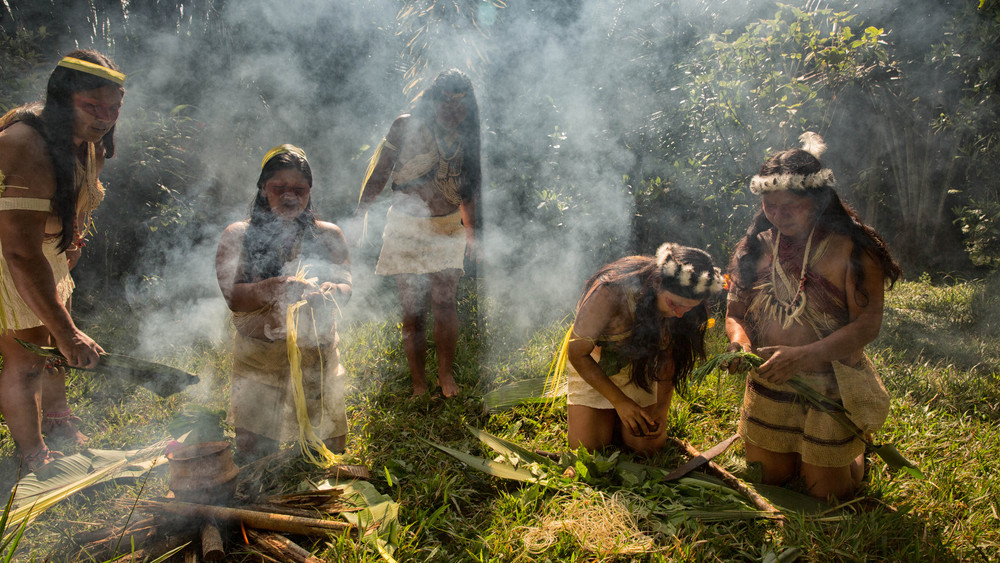
Source: IFAD
IFAD has issued a call for proposals for grant-funded projects designed to empower indigenous peoples' communities in rural areas. The grants will be provided through IFAD's Indigenous Peoples Assistance Facility (IPAF), established in 2007 to foster development in the framework of the United Nations Declaration on the Rights of Indigenous Peoples – and in partnership with indigenous peoples’ organizations at the regional level.
"Projects funded by IPAF support the self-driven development of indigenous peoples’ communities," said Antonella Cordone, IFAD's Senior Technical Specialist on Indigenous Peoples’ and Tribal Issues. "They generate lessons learned and approaches to rural development that can be replicated around the world."
Through small grants ranging from US$20,000 to US$50,000, IPAF finances projects that are designed and implemented by indigenous peoples themselves. These initiatives aim to strengthen indigenous peoples' organizations, building on their culture, identity and traditional knowledge.
Indigenous peoples’ communities and organizations from about 90 countries submitted proposals in response to three previous calls from IPAF in 2007, 2008 and 2011. To date, IPAF has financed more than 100 small projects in some 40 countries with total grants of US$2.6 million. The 2015 funding cycle is expected to finance around 30 projects in Africa, Asia and the Pacific, and Latin America and the Caribbean, with over US$1 million in grants.
Projects approved by IPAF address indigenous peoples' management of land and natural resources, their participation in policy-making, the preservation of their cultural heritage, and the improvement of indigenous women’s livelihoods, among many other issues. Priority areas in this funding cycle include food and nutrition security; access to markets; control over land, territories and resources; and climate change mitigation and adaptation. Proposals are due on 6 March, and finalists will likely be selected by July.
Global meeting of the Indigenous Peoples Forum
The IPAF call for proposals comes a month before the second global meeting of the Indigenous Peoples Forum at IFAD, scheduled for 12-13 February in Rome. The Forum will convene just prior to the Governing Council, IFAD's annual meeting of member states.
Overall, the Forum will focus on indigenous food systems and sustainable development. This theme builds on a number of projects financed through both IFAD and IPAF, which have highlighted the value of traditional knowledge and practices related to agriculture, biodiversity and food production. The Governing Council itself will also feature a panel discussion on indigenous peoples' sustainable food systems, in line with the theme of the Forum.
The first global meeting of the Forum took place in February 2013. At that session, indigenous peoples' representatives underscored their commitment to continue:
- Preserving their land, territories and resources as the basis for sustainable livelihoods and development, and as their contribution towards global environmental sustainability
- Working jointly with IFAD and national governments in the design and implementation of economically viable, culturally appropriate and ecologically sound development models for indigenous peoples.
To prepare for the Forum’s 2015 meeting, four regional workshops with indigenous peoples’ organizations took place during the final months of 2014, in Fiji, Indonesia, Paraguay and Tanzania. The workshops gathered the perspectives and recommendations of indigenous peoples in the various regions.
The upcoming Forum is also expected to build on the results of the firstWorld Conference on Indigenous Peoples, which took place during the UN General Assembly session in September of last year. The conference adopted an outcome document calling upon the UN Secretary-General to develop a system-wide action plan and a coherent approach to implementing the Declaration on the Rights of Indigenous Peoples. Heads of state and indigenous peoples’ representatives alike cited the document as a step forward. They noted that it underscores the right to free, prior and informed consent regarding all decisions that affect the lives, culture and identity of the world's 370 million indigenous people.
Photo credit: ©IFAD/Carla Francescutti
